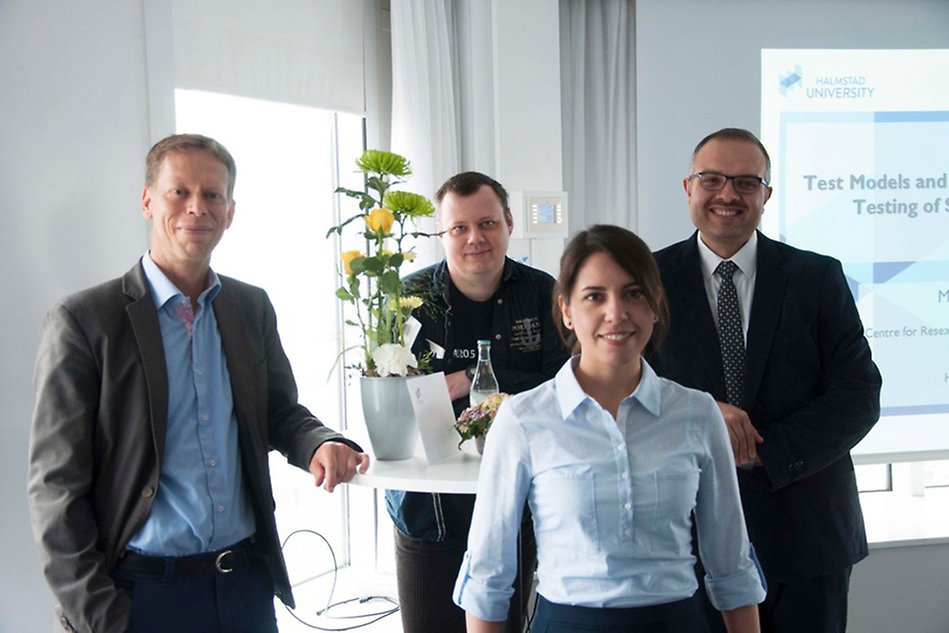Increasing efficiency in testing software product lines
Software product line engineering is a software development technique for mass production and customisation of systems such as medical devices, mobile phones and automotive systems. In a software product line, the products are developed based on a common core. For efficient development and safer software, research from Halmstad University suggests model-based testing of these cores.
Product lines have been used for over a century in order to streamline manufacturing by assembling parts designed to be reused across the product line. In a similar way, software product line engineering can reduce cost and time in software development by using a shared set of software assets. Mahsa Varshosaz, PhD student at the Centre for Research on Embedded Systems (CERES) at the School of Information Technology, is working on analysing software product lines with a focus on model-based testing approaches.
”The goal of my research is to investigate and develop techniques for an increased efficiency in testing products in a software product line by considering their commonalities and enabling systematic reuse throughout the testing process.”

The first phase in model-based testing is to create a good model. By using models of systems, test artifacts can be generated automatically. Hence, having better models leads to having tests with higher quality.
”I have studied how to enable reuse of test artifacts among products of a software product line by adapting model-based testing techniques”, says Mahsa Varshosaz.
Efficient testing methods for safer software
Software systems are widely used in everyday life and it is important to use quality assurance techniques such as testing to guarantee the reliability of such systems.
”Reducing the effort required for testing makes it possible to have more thorough quality checks for software systems, which consequently leads to having safer software.”
Mahsa Varshosaz successfully defended her licentiate thesis on May 29 and will continue her research towards a PhD:
”I am very interested in continuing my research on topics related to testing and verification of software systems.”
Text: Louise Wandel
About the licentiate thesis
Thesis: Test Models and Algorithms for Model-Based Testing of Software Product Lines, Mahsa Varshosaz, Centre for Research on Embedded Systems (CERES), School of Information Technology at Halmstad University.
The licentiate seminar took place May 29, 2017 at Halmstad University.
Supervisors: Mohammad Mousavi, Professor in Computer System Engineering at Halmstad University and Gerardo Schneider, Professor in Computer Science at Chalmers University of Technology.
Examiner: Slawomir Nowaczyk Associate Professor at Halmstad University.
Opponent: Dr. Maurice ter Beek, Italian National Research Council (CNR), Italy.
About the research at CERES
The Centre for Research on Embedded Systems, CERES, is a long-term research program on embedded systems established by Halmstad University, supported by funding from the Knowledge Foundation and by research cooperation with Swedish industry. A general principle in this research programme is that functionality and performance are achieved through the intelligent and massive co-operation between a large number of simple devices. ‘The power of cooperation’ is thus a summarising statement for the research. This is applicable on both the ‘micro’ and ‘macro’ levels.

